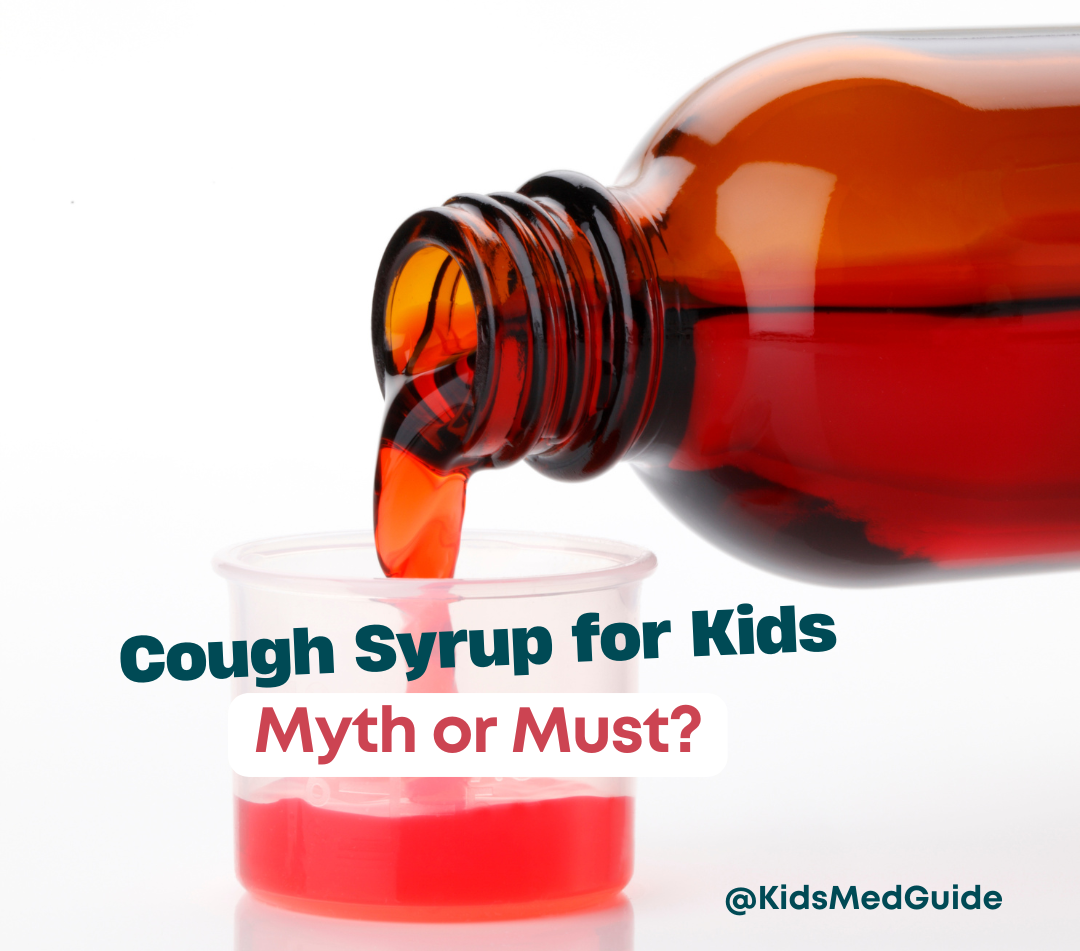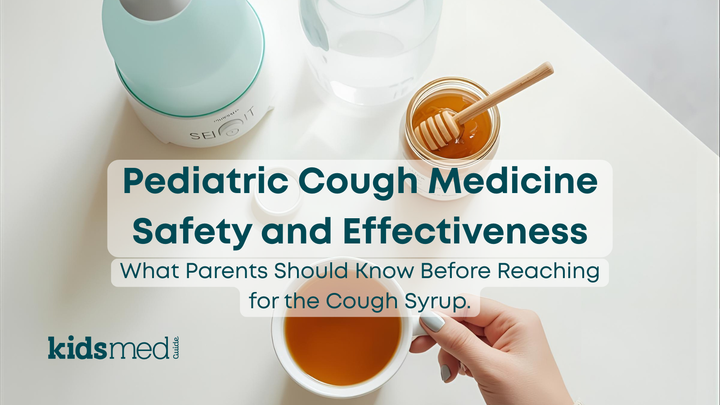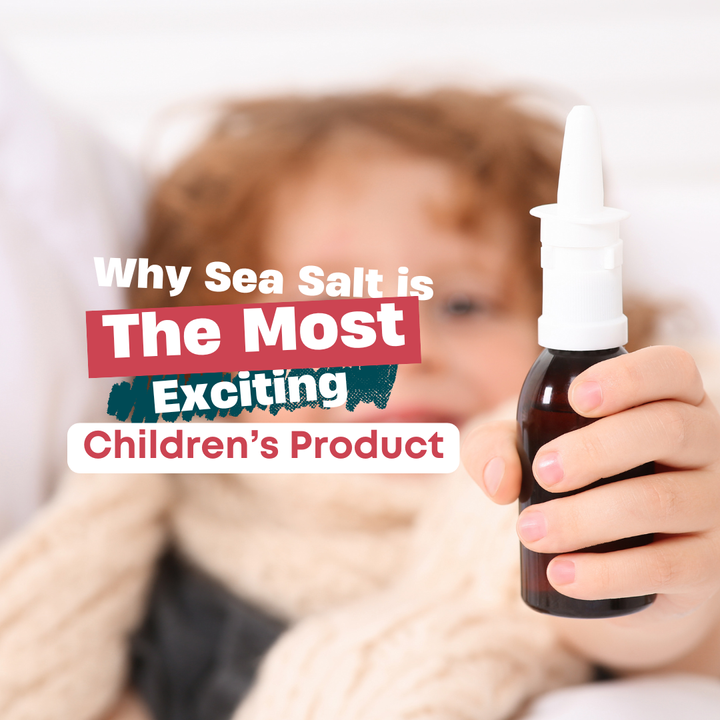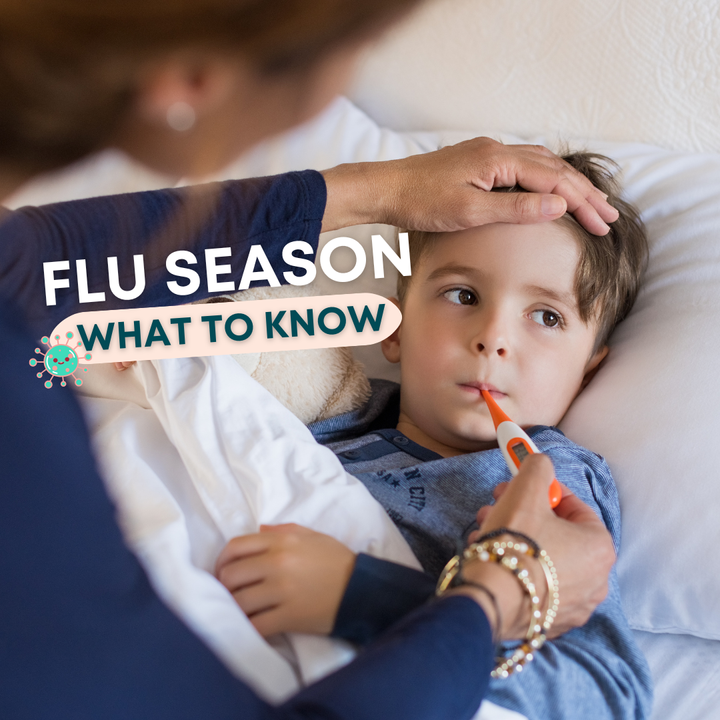Managing Cough in Children: Meds, Myths, and When to Worry

A cough is one of the most common reasons parents take their kids to the doctor—and it can be one of the most confusing things to handle at home. Let's face it: coughs can drag on FOREVER, especially during allergy season (hello, spring!) or after a winter cold.
Many parents have questions about coughs, whether their child is ill or has an annoying, lingering cough that persists. Some common questions we receive include: Is it safe to give cough syrup? When should you be concerned? Let’s bust the myths and break down the facts.
What Causes a Cough?
Coughing helps clear mucus, irritants, and infections from the airways. In children, most coughs are caused by viral infections, such as colds, the flu, or RSV. Other causes include asthma, allergies, postnasal drip, or exposure to smoke and environmental triggers.
Sometimes, a cough can linger. It may take time for the bronchial tissue to heal, or there could be irritation in the lungs, throat, or nasal passages, triggering a cough. Mucous from a cold or allergies can also persist for a long time, perpetuating the cough.
Myth: Cough Medicine is the Answer
Over-the-counter cough and cold medications are not recommended for children under 6 years of age. They’re not proven to be effective in young kids and can cause serious side effects.
To be honest, I usually don't recommend cough medicine for older children or adults, either. They just don't work very well, and they can cause drowsiness, dizziness, or interact with other medications.
Instead of cough medicine, try:
- 2.5 - 5 mL of honey (for kids over age 1): this is a natural cough suppressant and may work better than cough medicine, especially for nighttime coughs
- Saline nose sprays or drops
- Humidifiers to keep airways moist
- Plenty of fluids and rest
If none of these remedies work, it's time to call the doctor to discuss a check-up and possibly prescribe medication.
When Coughs Are Helpful
Coughing can actually help your child clear mucus from the lungs. That means suppressing it too aggressively might do more harm than good. Your goal should be comfort, not silencing every cough. This is another reason that healthcare providers avoid cough suppressant medications.
When to Worry About a Cough
- Cough in infants or young toddlers (may not be something worrisome, but infants especially should be evaluated if they have a cough)
- It lasts more than 10 days
- Comes with high fever, difficulty breathing, or chest pain
- Sounds like a bark (could be croup)
- Whooping sound (could be pertussis)
- Accompanied by wheezing or rapid breathing (could be asthma or pneumonia)
- Any signs that your child is having trouble getting enough air: retractions (using the muscles in the ribs, neck, or other places that show they are working too hard to breathe), blue or discolored fingers or extremities, nasal flaring, grunting, etc. These are all signs of a medical emergency.
Medications That Might Help
If your child's cough is severe or persistent, or if your child is an infant, consult your pediatrician. In some cases, medication may be prescribed to address the cough or its underlying cause.
Examples of prescriptions that your doctor may recommend are:
- Albuterol: For children with wheezing or asthma, prescribed by a doctor
- Steroids: May be used for croup, inflammation, or asthma flares
- Antibiotics: Only needed if there’s a bacterial infection like pneumonia
- Cough suppressants: Only recommended for older kids in specific situations and only under professional guidance
Safe Home Remedies
So - besides honey for kids over the age of one, what else can you do at home?
- Run a cool mist humidifier
- Elevate the head of the bed (except for infants, who should follow safe sleep guidelines and sleep on their back on a firm, flat surface)
- Offer warm liquids like broth or decaf tea
- Offer plenty of fluids, as being well hydrated helps to thin mucous and in turn clear up an illness or cough faster
- Use nasal suction or saline for congestion in younger children
- For children aged 2 years and older, you can try a mentholated rub on the chest and neck. Follow the package instructions closely and store it safely.
Final Thoughts
Coughs can be frustrating—but most are not serious and don’t need medication. Focus on comfort, monitor for any red flags, and when in doubt, consult your pediatrician or pharmacist.
Related:
Stuck on the Winter Cough Carousel?
Asthma Treatment, Triggers, and Management
The following references were used to compile this information:
Bennett, E., & Daly, S. (2021). Is honey better than dextromethorphan at decreasing acute cough in children? Evidence-Based Practice, 24(3), 40. https://doi.org/10.1097/EBP.0000000000000453
Coughs and Colds: Medicines or Home Remedies? (2018, November 29). HealthyChildren.Org. https://www.healthychildren.org/English/health-issues/conditions/chest-lungs/Pages/Coughs-and-Colds-Medicines-or-Home-Remedies.aspx
Marcus, M. G. (2016). Cough (Chapter 135). https://doi.org/10.9954/GBChapter



